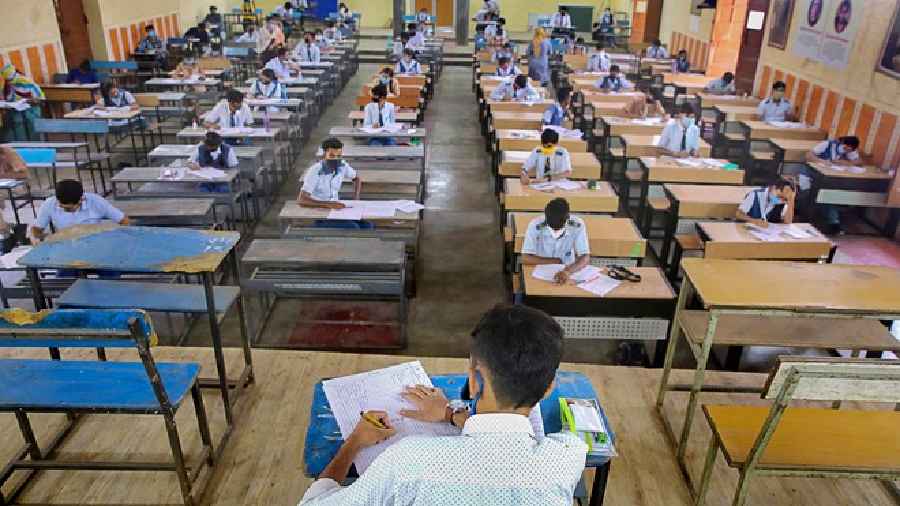Most school and college teachers believe there is widespread cheating in online exams by students, assisted by their family members, a sample study has found.
The study only covers the pandemic period, during which many universities allowed students to take their semester exams online from home, and many schools conducted online class tests and annual exams.
However, the findings are significant even for the present and future with the University Grants Commission now allowing up to 40 per cent of all general courses to be done online, with the exams too held online.
The study, “Online education and its effect on teachers during Covid-19: A case study from India”, published in the peer-reviewed journal PLOS One on Thursday, has also found that online teaching takes a toll on teachers’ physical and mental health.
The study was based on online surveys and telephone interviews conducted between December 2020 and June 2021 with 1,812 teachers from schools, colleges and coaching institutions in Assam, Haryana, Delhi, Rajasthan, Karnataka and Madhya Pradesh.
“Almost two-thirds of teachers who had administered online assessments were dissatisfied with the effectiveness and transparency of those assessments, given the high rates of cheating and Internet connectivity issues,” says the study, conducted by Surbhi Dayal, assistant professor of sociology at IIM Indore.
“They also reported that family members had been helping students to cheat in exams because they wanted their children to get higher grades by any means necessary.”
It adds: “In response, the teachers had tried to devise methods to discourage students and their families from cheating, but they still felt powerless to prevent widespread cheating.”
The study quotes a teacher on the efforts made to curb cheating, such as online proctoring with the students asked to switch on their mobile phone camera and install a mirror behind them while they write their exams.
“But students have their ways out for every matter. They disconnect the Internet cable or turn it off and reconnect it later. When we question them, they have a connectivity reason ready,” the paper quotes the teacher as saying.












